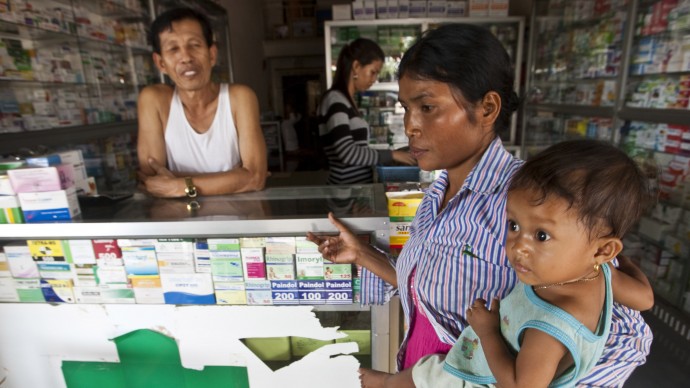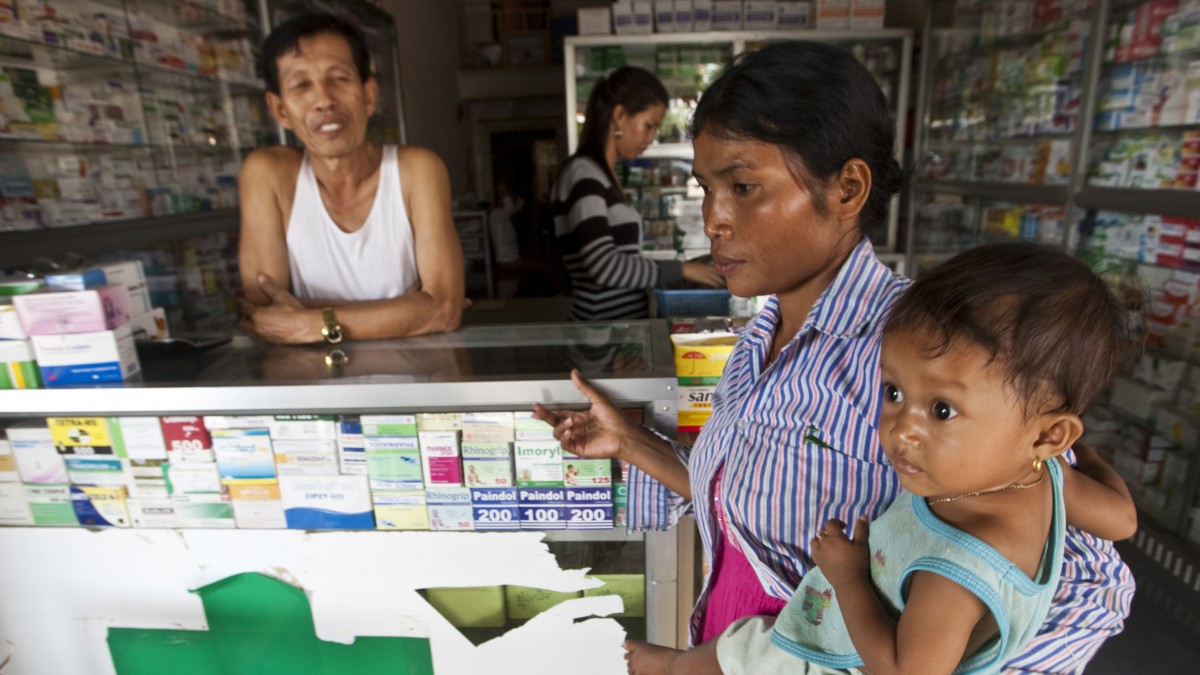
The future of a pricey malaria program meant to provide cheap drugs for poor patients may be in jeopardy after health officials clashed over its effectiveness in two new reports.
In 2010, the Affordable Medicines Facility for malaria was started by groups including United Nations agencies and the Global Fund to Fight AIDS, Tuberculosis and Malaria. It was a pilot project to subsidize artemesinin combination drugs, the most effective treatment for malaria.
The initiative cost more than $460 million, mostly funded by the Global Fund, UNITAID, and the Canadian and British governments. It was tested in eight countries: Cambodia, Ghana, Kenya, Madagascar, Niger, Nigeria, Tanzania and Uganda. Most of the drugs bought were sold in the private sector, where there are few controls on who gets them.
Last week, a report by Oxfam, an international charity, labeled the program a failure and said there was no proof it had saved lives because officials didn’t track who received the drugs.
“It’s time for this to be scrapped,” said Mohga Kamal-Yanni, the paper’s author. “If you subsidize drugs and make them cheap, then clearly the supply will increase. But we have no idea whether the drugs are getting to the right people.”
According to the World Health Organization, “improving the rational use of (malaria drugs) was not a specific strategic objective” of the program. In a statement, the agency said there was limited information about how many children under five — those most susceptible to malaria — received the subsidized drugs.
“No information has been made available on the use of these medicines by the poorest communities,” WHO said.
But in another paper published Wednesday in the journal Lancet, experts insisted the program was “an effective mechanism” to lower the price of preferred malaria drugs and make them widely available.
That study didn’t include Cambodia and found that everywhere except for Niger and Madagascar, there was a bigger supply of the medicines. Researchers didn’t measure whether that lowered the number of malaria cases. The study was paid for by the Global Fund and the Bill & Melinda Gates Foundation.
The Global Fund called the program “a practical approach to fighting disease” and said the malaria drugs were not previously available in many African communities. “The reality of this program is that it is getting life-saving medicine to people who need it most from the private sector outlets where they already seek treatment,” the fund said in a statement.
Others suggested the initiative be overhauled.
“We have had caveats about this program since the beginning,” said Manica Balasegaram, an executive director at Medecins Sans Frontieres, which is not linked to either report.
He said it was important to use diagnostic tests before giving out malaria medicines, to ensure that people who took them actually had malaria. Giving the drugs to people without the disease could worsen drug resistance and wouldn’t cure whatever ailment they did have. “If this program continues, we would like to see serious changes made,” Balasegaram said.
Next month, Global Fund officials and others will discuss the program’s fate at a previously scheduled meeting.
Since the program’s inception, the U.S. President’s Malaria Initiative, the world’s second-biggest donor to malaria control after the Global Fund, has requested compelling evidence the subsidy program works. Without that, the U.S. group said it is not allowed by law to finance the malaria project. WHO has described the program’s future as uncertain.
David Schellenberg, a public health expert at the London School of Hygiene and Tropical Medicine, said it was too early to judge if the program had succeeded. “More people might be inadequately treated if this program is closed,” he said. “But this approach will not work everywhere.”


